Basic Introduction to Community Work - Central
Basic Introduction to Community Work - Central
Basic Introduction to Community Work - Central
You also want an ePaper? Increase the reach of your titles
YUMPU automatically turns print PDFs into web optimized ePapers that Google loves.
Groups are everywhere and the inevitability of being in them makes<br />
groups one of the most important fac<strong>to</strong>rs in our lives.<br />
However, there is a downside <strong>to</strong> all this. The socialisation they offer,<br />
for example, might be highly constraining and oppressive for some of<br />
their members. Given all of this it is easy <strong>to</strong> see why the intervention<br />
of skilled leaders and tu<strong>to</strong>rs is sometimes necessary.<br />
Third, the social relationships involved in groups entail<br />
interdependence. In other words, groups come about in a<br />
psychological sense because people realise they are ‘in the same<br />
boat. However, even more significant than this for group process is<br />
some interdependence in the goals of group members. To get<br />
something done it is often necessary <strong>to</strong> cooperate with others.<br />
Fourth, when considering the activities of informal educa<strong>to</strong>rs and<br />
other workers operating in local communities it is helpful <strong>to</strong> consider<br />
whether the groups they engage with are planned or emergent.<br />
Planned groups are specifically formed for some purpose – either by<br />
their members, or by some external individual, group or organisation.<br />
Emergent groups come in<strong>to</strong> being relatively spontaneously where<br />
people find themselves <strong>to</strong>gether in the same place, or where the<br />
same collection of people gradually come <strong>to</strong> know each other through<br />
conversation and interaction over a period of time.<br />
Fifth, considerable insights can be gained in<strong>to</strong> the process and<br />
functioning of groups via the group dynamics and of small groups. Of<br />
particular help are explorations of group structure (including the group<br />
size and the roles people play), group norms and culture, group<br />
goals, and the relative cohesiveness of groups. That said, the skills<br />
needed for engaging in and with group life - and the attitudes,<br />
orientations and ideas associated with them - are learnt,<br />
predominantly, through experiencing group life. This provides a<br />
powerful rationale for educative interventions.<br />
63


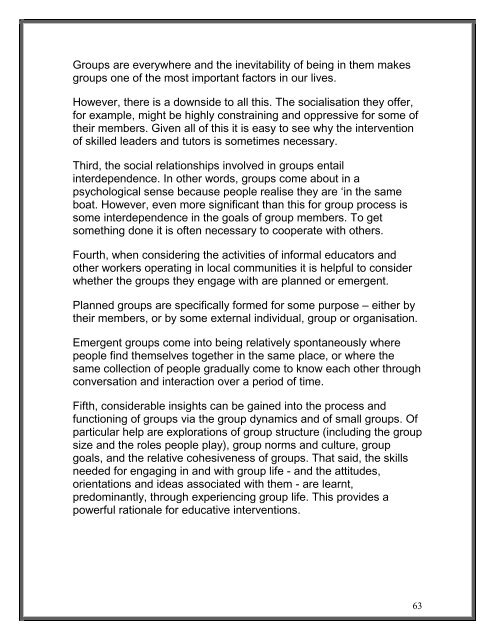

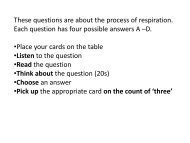
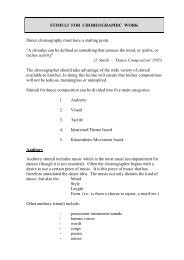
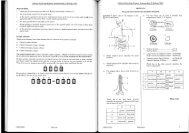

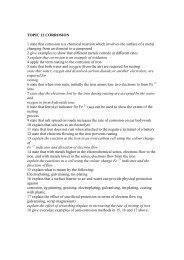
![Eastwood_Area_Catchment_updated_16-5-11[1]](https://img.yumpu.com/17146012/1/184x260/eastwood-area-catchment-updated-16-5-111.jpg?quality=85)






